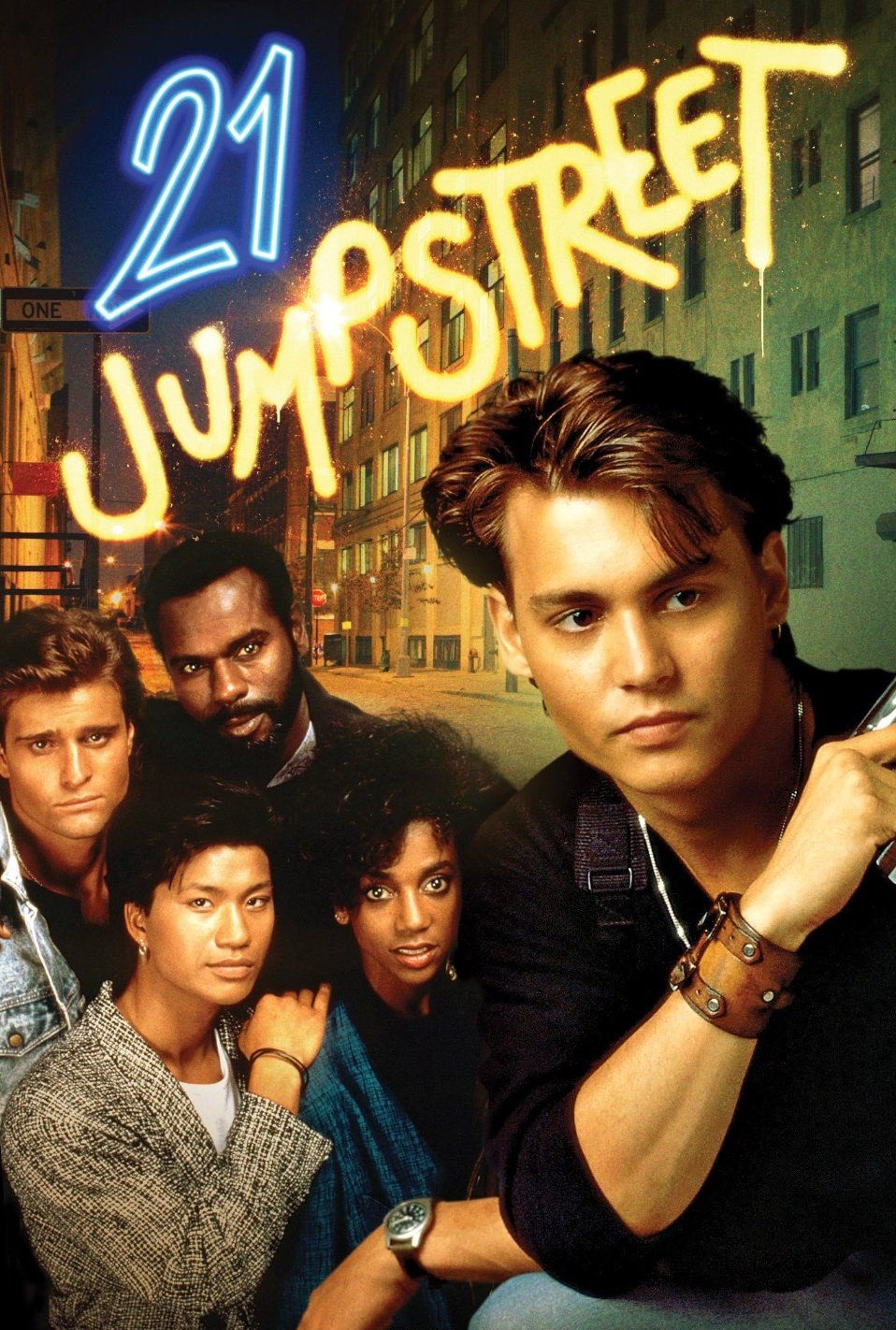Introduction
In the late 1980s, the television landscape witnessed a unique blend of genres with the arrival of “21 Jump Street.” A groundbreaking police procedural drama, this series dared to tread where others hadn’t, delving into the undercover lives of young-looking police officers tasked with infiltrating high schools to tackle youth-related crimes. Lasting from 1987 to 1991, “21 Jump Street” left an indelible mark on the television industry, combining gripping crime narratives with relevant social commentary. In this extensive exploration, we’ll delve into the origins, characters, impact, and enduring legacy of “21 Jump Street.”
The Birth of “21 Jump Street”
Concept and Development
“21 Jump Street” was the brainchild of Patrick Hasburgh and Stephen J. Cannell, renowned for their work on hit TV series like “The A-Team” and “Wiseguy.” The concept aimed to tackle the prevalent issue of youth crime by showcasing undercover police officers posing as high school students. This innovative approach not only provided a fresh perspective on crime-solving but also resonated with a diverse audience, including teenagers and adults.
Premise and Format
Premiering on April 12, 1987, “21 Jump Street” introduced viewers to the Jump Street Chapel, an abandoned chapel that served as the headquarters for a specialized unit of young officers. The show’s premise revolved around these undercover officers tackling crimes involving teenagers, such as drugs, bullying, and violence. The unique angle of exploring issues faced by young people contributed to the show’s widespread appeal.
Characters and Cast
Officer Tom Hanson (Johnny Depp)
The central character, Officer Tom Hanson, portrayed by a young Johnny Depp, was a key factor in the show’s success. Hanson, a former juvenile delinquent, brought a relatable edge to his undercover work, connecting with the very demographic the show aimed to address. Depp’s charismatic performance catapulted him to stardom and solidified his status as a heartthrob.
The Ensemble Cast
The show featured a diverse ensemble cast, including Holly Robinson Peete as Officer Judy Hoffs, Peter DeLuise as Officer Doug Penhall, Dustin Nguyen as Officer Harry Truman Ioki, and Steven Williams as Captain Adam Fuller. This multicultural and talented cast added depth and authenticity to the series, tackling various societal issues with sensitivity.
Impact and Cultural Relevance
Social Commentary
“21 Jump Street” was more than just a crime drama; it served as a platform for addressing relevant social issues faced by teenagers in the late ’80s and early ’90s. The show fearlessly tackled topics like drug abuse, peer pressure, racism, and teen suicide, providing a window into the challenges of adolescence.
Breaking Stereotypes
The series challenged stereotypes associated with law enforcement by portraying officers who could blend seamlessly into the teenage world. It humanized the police force, emphasizing the importance of understanding and connecting with the communities they served.
Johnny Depp’s Rise to Stardom
For Johnny Depp, “21 Jump Street” marked a turning point in his career. The show not only showcased his acting prowess but also catapulted him into the limelight. Depp’s portrayal of Officer Tom Hanson established him as a versatile actor, paving the way for his future successes in film.
Enduring Legacy
Cultural Impact
“21 Jump Street” left an enduring impact on popular culture. Its unique approach to storytelling, coupled with its socially relevant themes, ensured that it remained a cultural touchstone for those who grew up watching it. The show’s influence extended beyond its initial run, and it continues to be remembered fondly by fans.
Spin-Offs and Remake
The success of “21 Jump Street” led to two spin-off series, “Booker” (1989–1990) and “21 Jump Street” (2012–2016), the latter being a comedic film adaptation starring Jonah Hill and Channing Tatum. While the film took a comedic approach, it paid homage to the original series and introduced “21 Jump Street” to a new generation.
Johnny Depp’s Enduring Career
For Johnny Depp, “21 Jump Street” was a springboard to a successful film career. His subsequent roles in iconic films like “Edward Scissorhands,” “Pirates of the Caribbean,” and “Alice in Wonderland” established him as one of Hollywood’s most sought-after actors.
Behind the Scenes
Production Challenges
While “21 Jump Street” achieved immense popularity, it faced challenges behind the scenes. The demands of producing a weekly series with intense storylines took a toll on the cast and crew. Johnny Depp, in particular, expressed concerns about being typecast, leading to his departure from the show after four seasons.
Departure of Key Cast Members
The departure of Johnny Depp and other key cast members posed a significant challenge for the show’s continuity. The producers navigated this by introducing new characters and altering the dynamics within the Jump Street Chapel.
Conclusion
“21 Jump Street” (1987–1991) stands as a testament to the innovative storytelling that emerged from the late 1980s television landscape. With its unique premise, diverse cast, and commitment to addressing societal issues, the series left an indelible mark on the hearts of viewers. Johnny Depp’s breakout role, coupled with the show’s impact on cultural conversations surrounding youth-related problems, secured its place in the pantheon of iconic television.
As we reminisce about the undercover escapades of the Jump Street officers, it becomes evident that “21 Jump Street” was more than a crime drama – it was a cultural phenomenon that ignited important conversations and launched careers. Whether it’s the nostalgia of watching Johnny Depp’s early performances or reflecting on the show’s social relevance, “21 Jump Street” remains a timeless piece of television history, continuing to captivate audiences and inspire discussions about the challenges faced by young people. In the halls of the Jump Street Chapel, the echoes of its impact on television storytelling and societal awareness will resonate for years to come.
